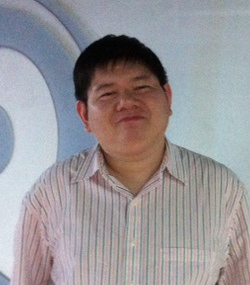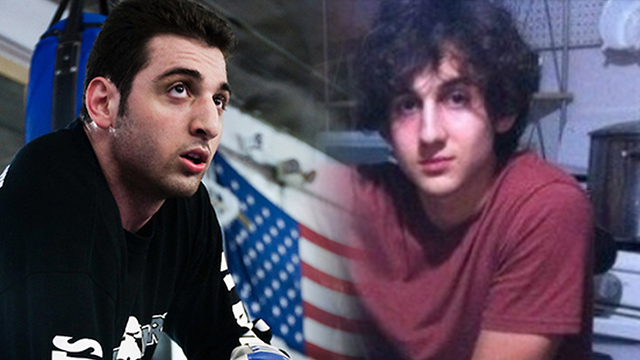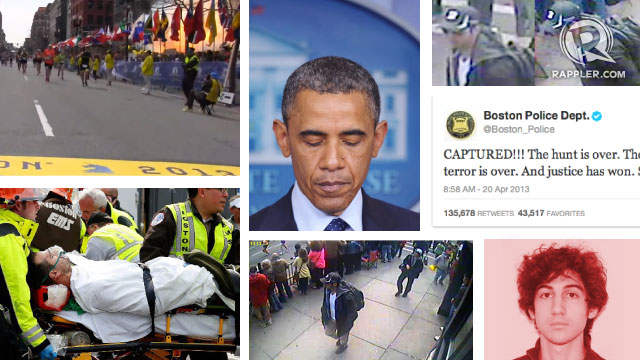SUMMARY
This is AI generated summarization, which may have errors. For context, always refer to the full article.

My curiosity led me to do a quick investigation. Instead of checking news agency reports, I went straight to the MIT social media networks for confirmation. The emergency website of MIT, as well as MIT’s The Tech Twitter account, did not disappoint.
The result of this investigation became our first report of many on a developing story of the MIT campus shooting, one aided as much by Reddit, Twitter, livestreaming news broadcasts, and streaming police scanners as it was by official news agencies on the ground.
Breaking news, accurate news
News reporting in the age of the Internet is not what I’d call an easy sort of journalism. Access to information from various sources has improved, but the number of people trying to call themselves an authoritative or trustworthy source has also increased, making it difficult to grasp the reality of a situation.
Worse still, the pressure to provide up-to-the-minute information and breaking news can sometimes trump the requirement to be accurate.
For instance, CNN has had a disastrous turn in the eyes of many people looking for news, as they put out information regarding an arrest during the Boston bombing that turned out to be false.
Looking more closely at my own reporting of the MIT campus shooting, I called the location of MIT as being part of the Greater Boston area in the earliest published version of my report. Instead, I should have more plainly stated that MIT was in Cambridge, Massachusetts to avoid reader confusion.
The point of this is simple: the pressure to be first can easily turn well-intentioned reporting into a grab at first prize, and anyone hoping to reach out to the truth needs to aim for accuracy rather than the quick draw.

Social media in a crisis
Social media, whether it be Twitter, Reddit, or some other social network, is a powerful tool that can be helpful or problematic in a crisis depending on how it is used.
There was a lot to praise and just as much to criticize when people took to social media to use it as a platform for crisis communications or as a means to rage at what’s happening.
On Reddit, a set of 9 threads saw a trio of Reddit users (redditors) constantly updating people on the goings-on during the MIT campus shooting, all the way to the arrest of Dzhokhar Tsarnaev. Another redditor also created a general timeline of events from the bombing to the arrest.
After the events at MIT and Watertown, redditors also went to the RandomActsofPizza subreddit to see how they could send pizzas to the police departments in Boston, Cambridge, Watertown and surrounding areas.
A notable issue with Reddit was the creation of an entire subreddit dedicated to finding out who the Boston bombers were. This resulted in a number of issues, such as the spread of misinformation and the fingerpointing of a missing person named Sunil Tripathi as the possible bomber.
As Redditor ThirtyDegrees put it, “the subreddit was nothing more than a place for wild speculation and angry defenses of that wild speculation, except for the brief moment in which the sub erupted in smug self satisfaction that they had ‘been right’ about a man they called a terrorist to his mother’s face and left a record of their libel.”
Reddit general manager Erik Martin later apologized for allowing a subsection of Reddit to become a rallying point for an online witch hunt, though the damage was done.
This isn’t to say that other social networks didn’t play a part. Twitter was a great information resource if you followed @Boston_Police and other emergency responders. When Dzokhar Tsarnaev was arrested, ending a 20-hour lockdown of greater Boston, CNN announced it, based on the tweet of @Boston_Police.
At the same time, the knee-jerk reaction of people on Twitter (and Facebook to some extent) was to mistake Chechnya as the Czech Republic and rage about it while remaining misinformed. It was enough to force Petr Gandalovic, the Czech Republic’s ambassador to the United States, to make a public statement and geography lesson to inform everyone of the difference.

The weight of community
In a piece on PaidContent.org, Matthew Ingram points to a certain strength in open journalism, or the aggregation and vetting of information by a large number of people with different specializations and backgrounds.
While it isn’t perfect yet, having a significant number of people on social media working together to qualify information and verify details gathered from the ground or other sources, and having the group spread the message outward can be beneficial. This is especially notable in situations of great import.
The Arab Spring was, in part, helped by social media influence, with people on the ground and on the Internet working together to maintain the flow of information. When the conflict between Gaza and Egypt escalated in November 2012, it was social media users spreading the work of the hacktivist community that helped information to spread that would keep people at the Gaza Strip online.
Closer to home, we have the many instances when social media networks spread information during torrential rains and storms, providing some with a means of getting help, and providing others with a way to give help to others.
While social media is still a growing sort of technological phenomenon, I believe that it can prove to be a self-regulating force for positive change. I turned to it as a source of information because I could generally discern how trustworthy certain information was, but it may take some time for it to be a common place to gather reliable information in a crisis.
For social media to become a useful entity when the chips are down, I think Erik Martin’s post on the Reddit blog had the right idea. He wrote, “These communities and lives are now interconnected in an unprecedented way. Especially when the stakes are high we must strive to show good judgement and solidarity. One of the greatest strengths of decentralized, self-organizing groups is the ability to quickly incorporate feedback and adapt.”
To paraphrase Erik Martin’s parting words, perhaps the events of Boston, which showed the best and worst of social media’s potential, will also provide the focus that allows social media users to be sensitive to — and to understand — their own growing power. – Rappler.com
Add a comment
How does this make you feel?
There are no comments yet. Add your comment to start the conversation.